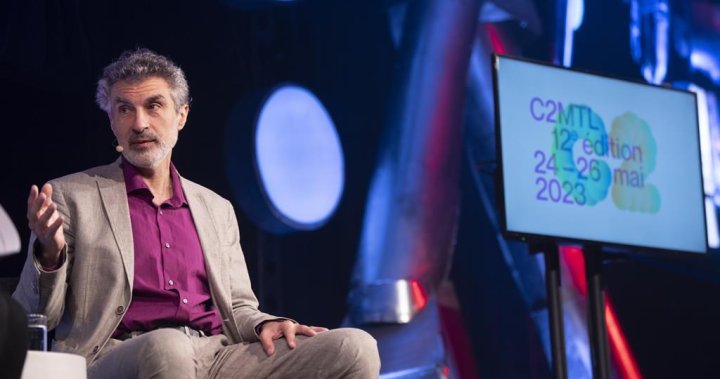A recent international report on the safety of artificial intelligence, chaired by Canada’s Yoshua Bengio, concludes that there is a significant level of uncertainty surrounding the future trajectory of general-purpose AI. The report highlights the possibility of both positive and negative outcomes, stating that experts cannot agree on the risks posed by the technology. Commissioned at last year’s AI Safety Summit in the United Kingdom, the report was released ahead of another global summit on AI in Seoul, South Korea. Bengio, a renowned figure in the field of AI, emphasized the rapid development of advanced AI systems and the potential impacts on society in the future.
The U.K. government has described the report as the “first-ever independent, international scientific report” on AI safety, noting that it will play a crucial role in shaping discussions at the upcoming summit in South Korea. The report, an interim version, was drafted by a group of 75 experts, including a panel representing 30 countries, the European Union, and the United Nations. It focuses primarily on general-purpose AI systems, such as OpenAI’s ChatGPT, which have the capability to generate text, images, and videos based on prompts. Despite the diversity of perspectives among experts, there are ongoing debates on various aspects of AI, such as its capabilities, associated risks, and potential risk mitigation strategies.
One of the key areas of contention among experts is the likelihood of risks such as large-scale impacts on the labor market, AI-enabled hacking or biological attacks, and the potential loss of societal control over general-purpose AI. The report highlights several risks associated with AI, including the spread of fake content, disinformation, fraud, and cyberattacks, as well as biases that could affect critical domains like healthcare, job recruitment, and financial lending. One concerning scenario outlined in the report is the possibility that humans may lose control over artificial intelligence, making it difficult to manage and mitigate the harm caused by the technology. While current general-purpose AI technology may not pose this risk, experts are concerned about the development of autonomous AI systems that can independently act, plan, and pursue goals.
The report emphasizes the ongoing disagreements among experts regarding the plausibility and timing of loss-of-control scenarios, as well as the challenges associated with mitigating such risks. While some believe that the current general-purpose technology does not present a significant risk of loss of control, others argue that advancements in autonomous AI could lead to unforeseen consequences. The report underscores the importance of addressing potential risks associated with AI, particularly in high-stakes domains where biased or uncontrolled AI systems could have detrimental effects. Given the rapid pace of AI development, it is crucial for policymakers, researchers, and industry stakeholders to collaborate on identifying and addressing risks to ensure the safe and responsible advancement of artificial intelligence technology.
In conclusion, the international report on the safety of artificial intelligence highlights the complex and uncertain nature of the future trajectory of AI. The divergent perspectives among experts underscore the need for ongoing research, discussion, and collaboration to address the risks associated with AI technology. As AI systems continue to evolve and impact various aspects of society, it is essential to consider potential risks and opportunities to ensure that the benefits of AI are maximized while mitigating potential harms. The upcoming global summit in South Korea provides an opportunity for policymakers and experts to engage in meaningful dialogue on AI safety and regulation, with the goal of fostering a safer and more sustainable future for artificial intelligence.


